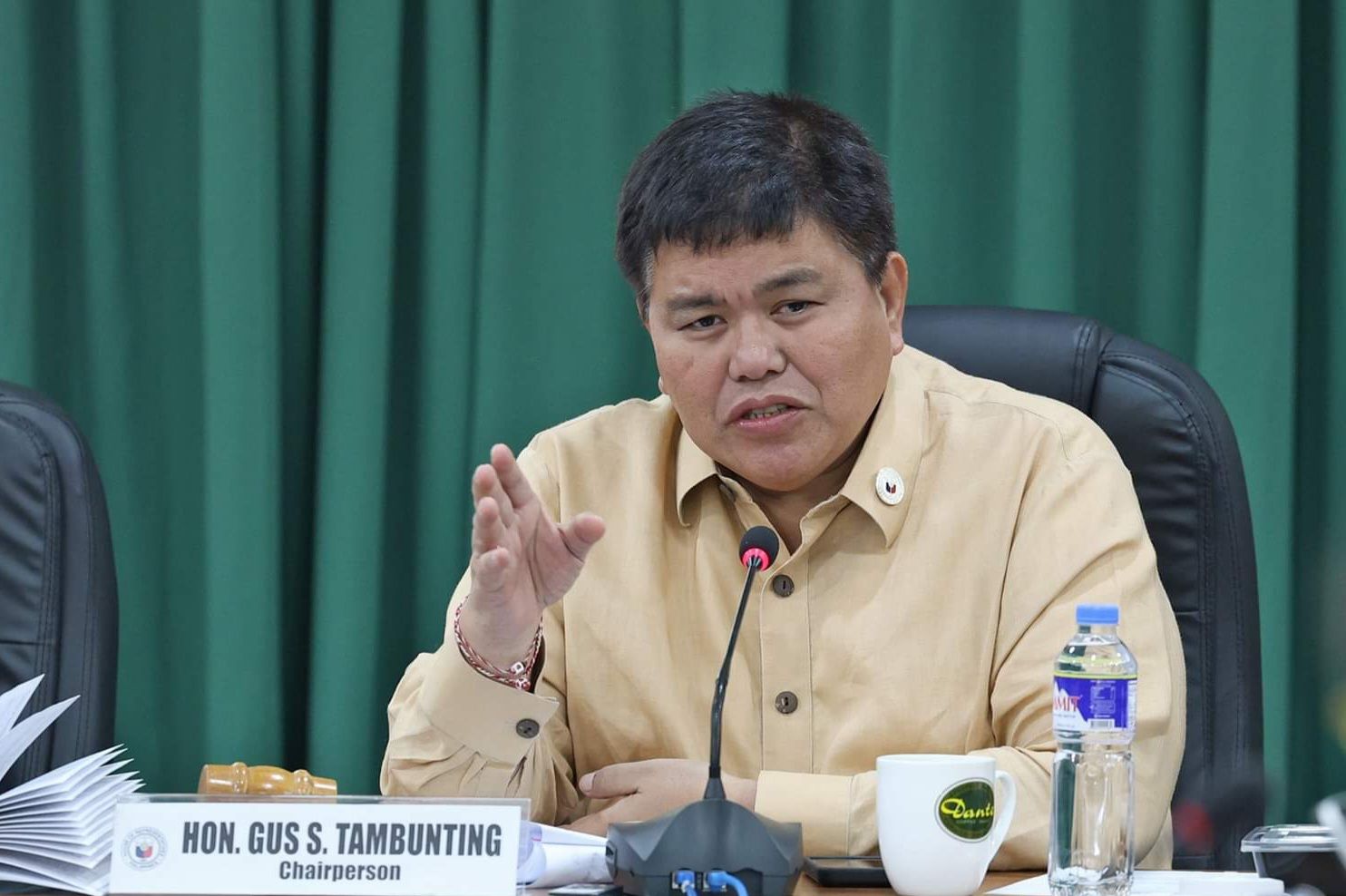'Anong holiday?': House panel looks into delays in 200 power transmission projects
At A Glance
- Displaying a great sense of urgency, the House Committee on Legislative Franchises tackled during a briefing on Monday, Dec. 23 the reported delays in the implementation of more than 200 electricity transmission projects in country.
 Parañaque City 2nd district Rep. Gus Tambunting (Facebook)
Parañaque City 2nd district Rep. Gus Tambunting (Facebook)
Displaying a great sense of urgency, the House Committee on Legislative Franchises tackled during a briefing on Monday, Dec. 23 the reported delays in the implementation of more than 200 electricity transmission projects in country.
Chaired by Paran̈aque City 2nd district Rep. Gus Tambunting, the committee did so while staring the holiday season straight in the eye, and ahead of the expected extreme weather conditions in 2025.
Attending the briefing were officials from the the National Grid Corp. of the Philippines (NGCP), which had been carrying out the transmission projects; the Department of Energy (DOE); the Energy Regulatory Commission (ERC); and other stakeholders.
The committee called for the briefings as early as July this year in anticipation of the impact of the extended wet season La Niña.
The panel has also received three resolutions from the House plenary calling for an investigation into NGCP’s power transmission project delays and the transmission monopoly’s alleged violations of the terms and conditions of its legislative franchise.
During Monday's briefing, Tambunting told his colleagues that the House remains “committed to ensuring its franchise grantees are prepared to deliver services to their respective areas".
Last April, he said that “Extreme heat led to a surge in the country’s electricity demand, causing power plant shutdowns, triggering alerts, and resulting in widespread power outages that disrupted commerce and severely impacted communities.”
To address these issues, he said the committee took the initiative to call stakeholders, particularly NGCP, DOE, the agency responsible for ensuring reliable, sufficient and affordable electricity supply, and ERC, the state regulator.
“Through our briefings, it was revealed that over 200 critical transmission projects outlined in the latest approved 2023 Transmission Development Plan were significantly delayed, failing to meet their projected timelines,” he said.
He added that although electricity producers have substantial power generation capacity in development, “The absence of necessary transmission systems poses a risk of power supply deficits.”
“This challenge is particularly pressing as the country transitions to renewable energy sources, aligning with its commitment to combating climate change. This additional generation capacity is vital as rising temperatures drive up electricity demand and increase the likelihood of power plant shutdowns and outages,” Tambunting stressed.
He pointed out that it is important for the committee to look into the reported power transmission project delays “as we head into the new year and brace for extreme weather anew".
Deputy Speaker Quezon 2nd district Rep. David "Jay-jay" Suarez asked the DOE and ERC to submit to the committee a list of approved transmission infrastructure projects, their implementation timelines, which projects are delayed and why, and completion schedules, among other relevant information.
P15.8M in fines
In its previous hearings, the legislative franchises panel learned that the ERC has fined NGCP P15.8 million for “unjustified delays” in 34 out of 37 projects.
Tambunting said the fines were too small compared to the inconvenience NGCP’s failure to complete its transmission facilities on time is causing electricity users.
He said the transmission company is making tens of billions a year in net profits and could readily afford a P16 million fine.
In response, ERC Chairperson Monalisa Dimalanta cited the limitations of the penalty system under the law.
“The cost of these penalties couldn’t really be compared to the cost of the delays, but we are bound by the schedule of fines and penalties, which are capped at P500,000 (per project),” she said.
NGCP is a transmission monopoly. It inherited the transmission lines, stations and similar facilities of state-owned National Power Corporation (Napocor). It is 40 percent owned by a Chinese state company, with 60 percent ownership held by local big business partners.
In a recent hearing, lawmakers learned that between 74 percent and 92 percent of NGCP’s annual net profits of more than P20 billion was paid to its shareholders.